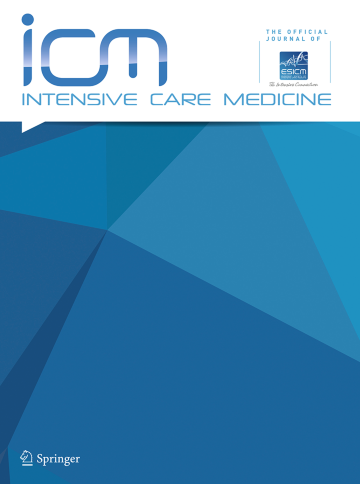重症监护室的创伤性脑损伤管理:护理标准和知识差距。
IF 27.1
1区 医学
Q1 CRITICAL CARE MEDICINE
引用次数: 0
摘要
尽管在重症监护病房(ICU)的创伤性脑损伤(TBI)管理方面取得了进展,并且实施了新的诊断技术和监测模式,但神经系统预后不良的比率仍然很高。专门的神经危重症护理单位已被证明可以改善结果。已经制定了指南,但大多数建议都是基于低水平的证据。这导致临床实践在TBI管理的许多方面存在很大的异质性,包括多模式神经监测指征、颅内和颅外并发症的治疗以及预后工具的使用。最近出现了新的工具,如生物标志物和人工智能的使用,但需要进一步的研究来确定它们在临床实践中的应用。这篇叙述性综述旨在描述ICU TBI管理的实践标准,突出当前的证据和知识差距,为临床医生提供一个实用的方法来照顾这一人群。本文章由计算机程序翻译,如有差异,请以英文原文为准。
Traumatic brain injury management in the intensive care unit: standard of care and knowledge gaps.
Despite advances in the management of traumatic brain injury (TBI) in the intensive care unit (ICU), and the implementation of new diagnostic techniques and monitoring modalities, the rate of poor neurological outcomes remains high. Specialized neurocritical care units have been shown to improve outcomes. Guidelines have been developed, but most recommendations are based on low levels of evidence. This has led to substantial heterogeneity in clinical practice for many aspects of TBI management, including multimodal neuromonitoring indications, treatment of intra- and extra-cranial complications, and use of prognostic tools. New tools have recently emerged, such as biomarkers and the use of artificial intelligence, but further research is needed to establish their application in clinical practice. This narrative review aims to describe standards of practice for the management of TBI in the ICU, highlighting current evidence and knowledge gaps, to provide a pragmatic approach for clinicians caring for this population.
求助全文
通过发布文献求助,成功后即可免费获取论文全文。
去求助
来源期刊

Intensive Care Medicine
医学-危重病医学
CiteScore
51.50
自引率
2.80%
发文量
326
审稿时长
1 months
期刊介绍:
Intensive Care Medicine is the premier publication platform fostering the communication and exchange of cutting-edge research and ideas within the field of intensive care medicine on a comprehensive scale. Catering to professionals involved in intensive medical care, including intensivists, medical specialists, nurses, and other healthcare professionals, ICM stands as the official journal of The European Society of Intensive Care Medicine. ICM is dedicated to advancing the understanding and practice of intensive care medicine among professionals in Europe and beyond. The journal provides a robust platform for disseminating current research findings and innovative ideas in intensive care medicine. Content published in Intensive Care Medicine encompasses a wide range, including review articles, original research papers, letters, reviews, debates, and more.
 求助内容:
求助内容: 应助结果提醒方式:
应助结果提醒方式:


